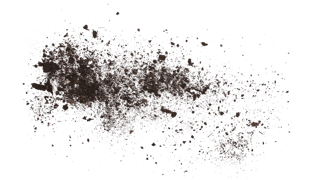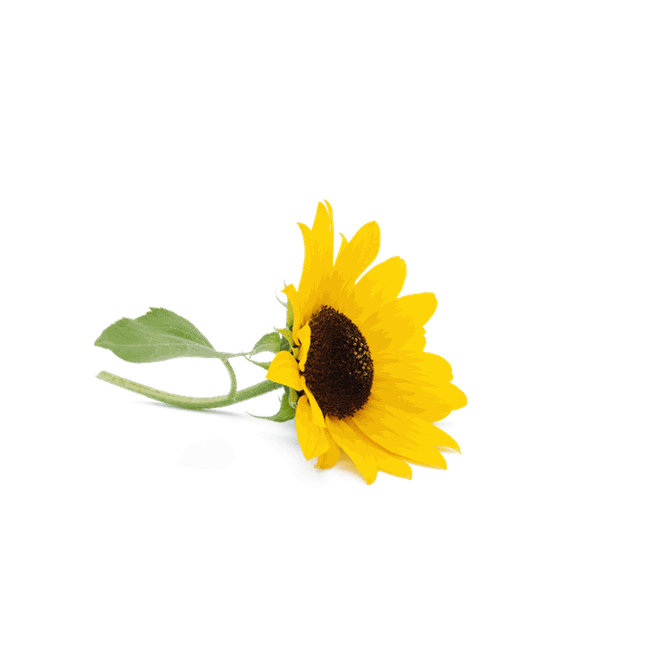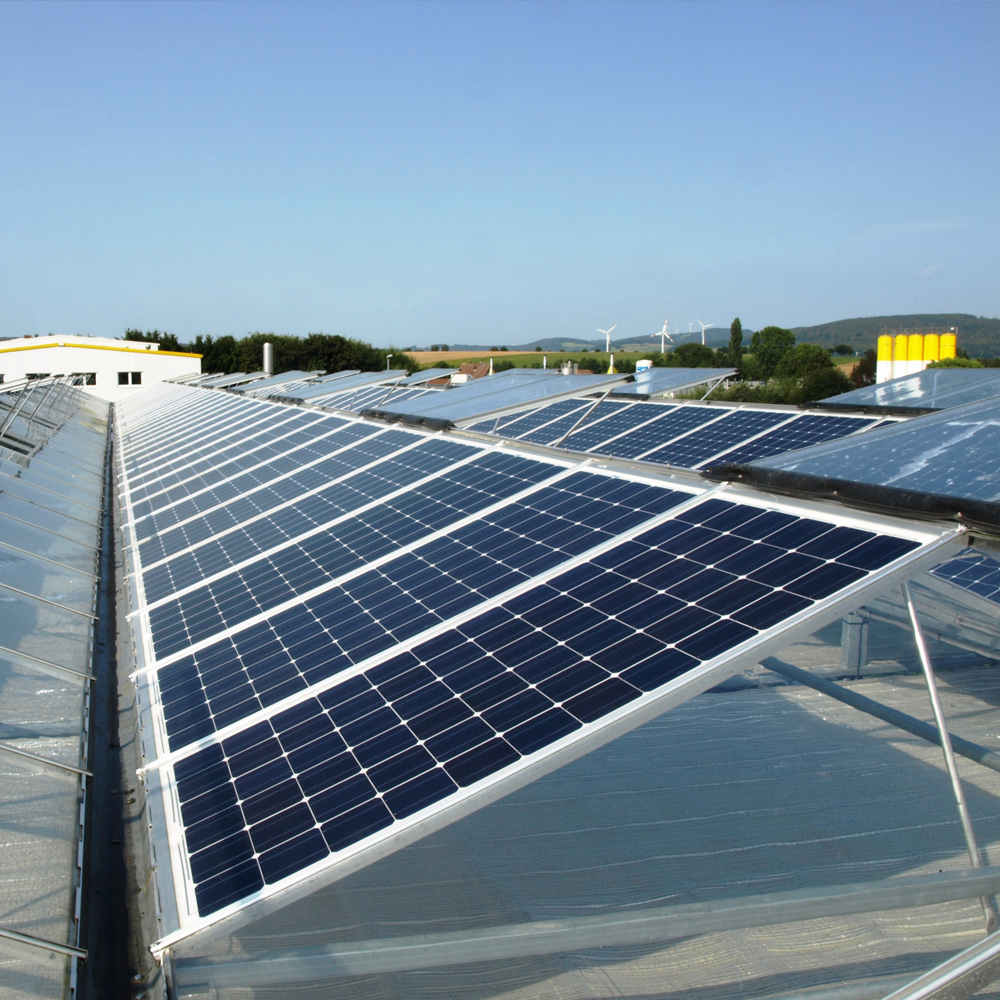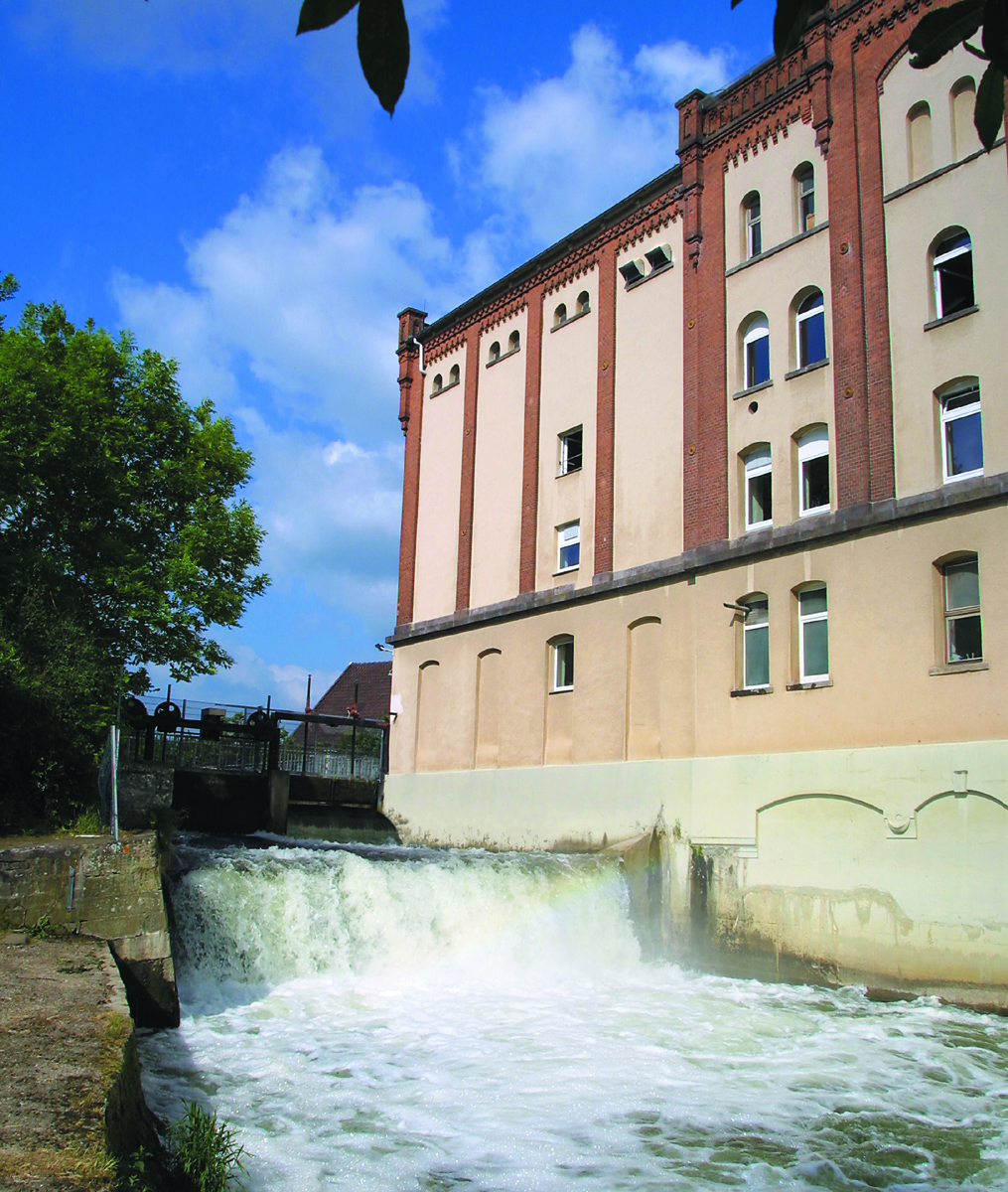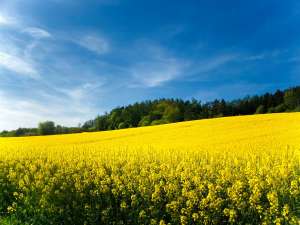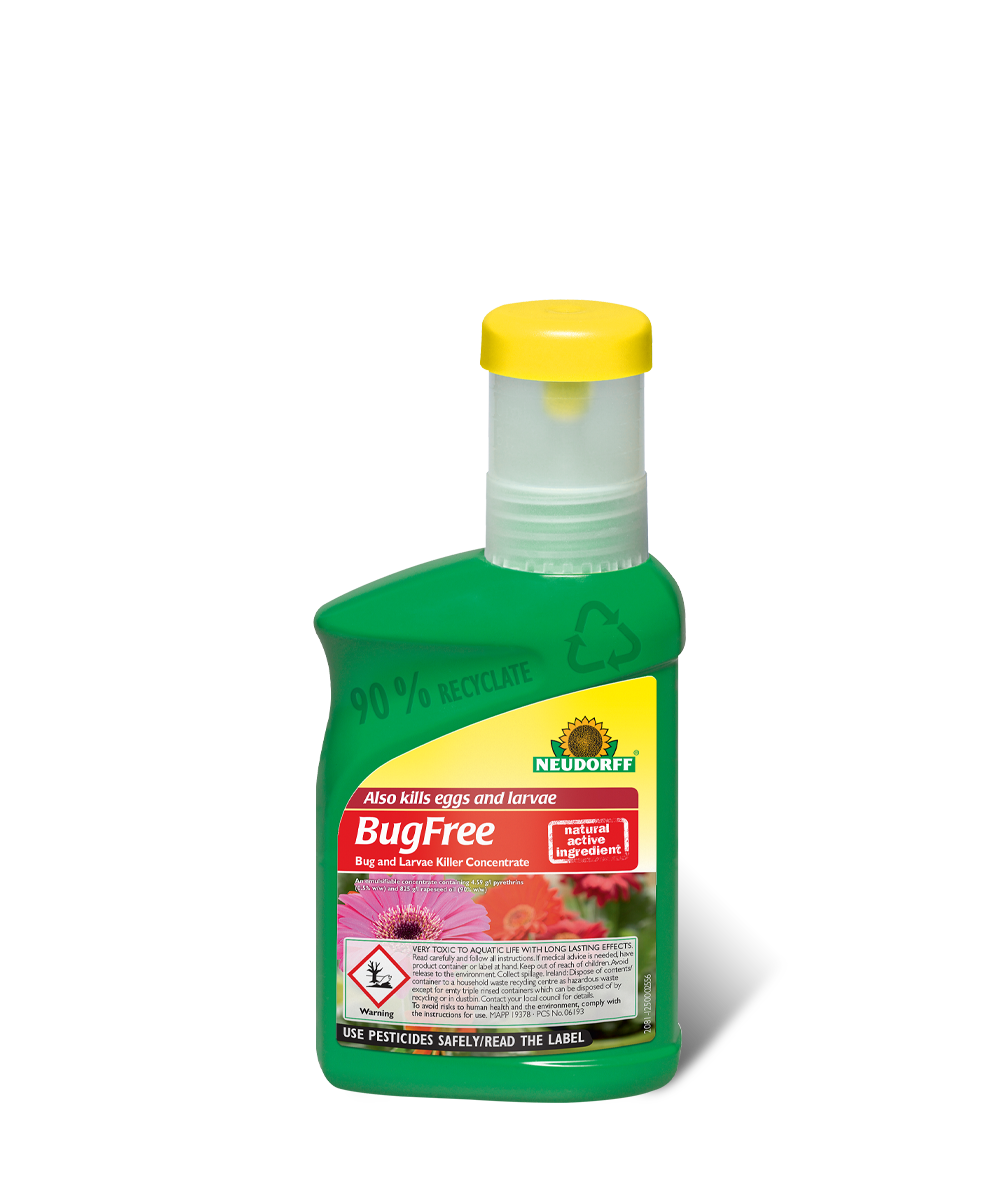Sustainability
Sustainable for people and the environment
Although the term “sustainability” is becoming ever more overused – sustainability is a principle that's very close to our hearts. We want to maintain our environment and have already done a huge amount to conserve resources and, thus, protect our environment. Here is an overview of the most important steps we have taken.
Previous results
Successful measures – what we have already achieved
We have already successfully implemented these measures and saved lots of energy as a result:
- Three of the four company sites are powered exclusively by energy from renewable sources. As a result, we have managed to reduce CO2 emissions by 154 t in just six months.
- Water is heated using solar power, which saves up to 5,500 kWh gas a year.
- Our solar power produces an annual output of 75,000 kWh.
- Our hydroelectric power from the River Emmer can generate up to around 1 million kWh a year.
- Since November 2013 we have been producing energy with a combined heat and power plant in our plant in Lüneburg. It generates about 350,000 kWh of electricity and 570,000 kWh of heat per year.
- By exchanging all the old light fittings with conventional ballast for modern, energy-saving T5 and LED lighting we have been able to save 50 % or 40,000 kWh energy.
- Using power-heat coupling for the drying process in the production of our Sluggo® Slug & Snail Killer+, will reduce CO2 emissions and costs.
- Pressure reduction and fast elimination of leaks in production saves 15 % or 10,000 kWh a year.
- The voltage optimisation system that we installed in October 2011 saves 8 % or 100,000 kWh.
- Installing a video conference room with a Smart Board will reduce flights and other business travel in the long-term.
- We only use company cars with maximum emissions of 120 g CO2/km. We want to reduce fuel consumption and exhaust gases by up to 10 %.
- We were able to recycle over 5 t of plastic waste in 2012, which otherwise would simply have been sent for thermal utilisation, i.e. incineration.
Awards for our commitment to sustainability
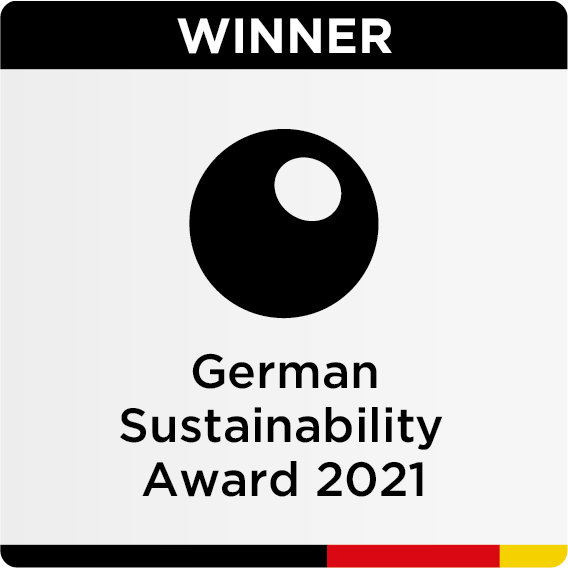
In the 2021 fiscal year, our production will be climate-neutral. Our own power generation using water power, solar installations and combined heat and power helps to achieve this. We strive to conserve resources in all areas. This is our contribution to sustainable development in line with the UN's 2030 Agenda. So we're all the more pleased with the various awards demonstrating appreciation for our services.
On 4th December 2020, we were announced winner of the German Sustainability Award 2021 in the category “Transformation Resources”. We were also a national winner of the "Social Responsibility and Environmental Awareness" award, presented by the European Business Awards (2017/18). As early as 2016, we made it into the top 10 in Europe in the "Environmental and Sustainability" category of the European Business Awards.
In 2017, Neudorff received the Green Brands Award for its commitment to sustainability and the environment. The Green Brands jury consists of scientists, professors and executives from the business world.
For its consistent corporate concept with regard to environment and sustainability, natural garden pioneer Neudorff from Emmerthal in Lower Saxony, Germany, also received the TASPO Award 2017. The prize was awarded by a top-class jury of 27 well-known personalities from the horticultural industry and associated fields.
Energy supply – being self-sufficient
Hydroelectric power
Our administrative offices are housed in an old mill building. One “leg” of the building sits in a branch of the small Emmer River. A powerful turbine in the building produces 1,000,000 kWh of energy a year from hydroelectric power. Thus, we produce more than three times as much energy as we need in a year!
Solar power
We have installed a solar power system on the roof of our production building in Lüneburg, which we use to heat water. This means that in summer we save 100 % of the energy we need, and over the year we save up to 5,500 kWh of gas. Near Hamelin we have installed a solar power system on the roof of our experimental nursery. Thanks to the photovoltaic system, we have been able to save 18 % of energy across the working area. There is an additional solar power system on the roof of a production hall, which produces some of the energy needed there. In total, we produce around 75,000 kWh of energy from our solar power systems.
Waste heat biogas plant
The experimental nursery consumes heat energy, because unfortunately the sun alone is insufficient to heat the greenhouses. We use the waste heat from a nearby biogas plant for this purpose. We are able to meet 80 % of the heat demand in this way.
Wind gas

We have been using wind gas rather than natural gas to cover the remaining 30 % of the experimental nursery's heat demand since April 2012. This involves a new technology.
But what is wind gas? Wind turbines sometimes produce more electricity than is needed. To store this power hydrogen is produced using electrolysis. This hydrogen is then processed and fed into the gas distribution system. Thus, the surplus energy is stored and can be used to produce heat. Wind gas is a storage technology that saves valuable resources, making it another small step towards sustainable energy use.
Energy from renewable sources
It is not always possible to produce energy ourselves so sometimes we have to purchase some to make up the shortfall. For these instances we use power from the energy supplier Naturstrom AG, because they only supply energy from renewable sources. Both use 100 % power from water, solar, wind and biomass. What impresses us about this supplier is the fact that Naturstrom invests directly in the construction of new power stations to produce renewable energy. Given that we use eco-power in all of our locations in Germany, our production will be practically CO2 neutral in terms of electricity from 2014 on. So we think there are many reasons to switch to electricity from regenerative sources!
Our own combined heat and power plant
Since November 2013 we have been producing energy for our plant in Lüneburg in our combined heat and power plant. These systems use the principle of co-generating heat and power.
They produce electrical energy and heat at the place where the thermal energy is consumed. It is driven by a six cylinder gas engine whose exhaust heat is used for the drying process in slug pellet production.
In 5,000 operating hours the combined heat and power plant generates 350,000 kWh of electricity per year, and this not only cuts our costs, it also eases the strain on the power grid. We use the 550,000 kWh of thermal energy obtained to to dry our slug pellets.
Carbon Foot Print
With the assistance of TÜV Nord (Technical Inspection Agency/Germany) we have created a carbon foot print for the whole company. It is more laborious than you might think to record and evaluate all energy flows and consumptions within the company. We can only document and evaluate the changes over the years once we have recorded the actual situation.
Raw materials
Raw materials for our products – local wherever possible
We believe it is best if we use quickly renewable resources in our products. We are really happy if they grow nearby, i.e. in our region, removing the need to transport them over long distances.
These are important raw materials in our products:
Rapeseed oil
Rapeseed grows “right on our doorstep”, regrows quickly and provides some of the ingredients for our ecofriendly Pyrol. The oil is obtained from the seeds of the rapeseed plant.
Natural pyrethrum
This raw material comes from the flowers of a certain type of chrysanthemum (Chrysanthemum cinerariaefolium). It does regrow quickly, but unfortunately not nearby, as it mainly comes from Africa. It is the main ingredient in our BugFree Bug and Larvae Killer+. Natural pyrethrum breaks down very quickly when exposed to light and oxygen, which means the waiting period before harvest is very short when using the active ingredient.
Iron(III) phosphate
Both iron and phosphate compounds occur naturally in the soil. We utilise the combination of minerals for use in our Sluggo® Slug & Snail Killer+*. It breaks down easily in the soil and is harmless to useful animals like hedgehogs, earthworms, bees, but also to dogs, cats and other domestic pets.
*Use plant protection products safely. Always read the label and product information before use.
Packaging / waste
Packaging – making new from old
We make sure our packaging has as little impact on the environment as possible. To achieve this, whenever possible we use packaging materials that are recycled or at least that can be recycled.
We maintain a constant dialogue with the packaging industry and are always looking for ways to improve. For example, our 250ml concentrate bottles (as used for BugFree Bug and Larvae Killer Concentrate+) are being converted to a more environmentally friendly material, 90% recycled plastic. This move will see an annual saving of around 7.5 tons of CO2 – the equivalent of planting 600 beech trees. This in turn will enable us to cut our use of virgin plastics by 4.7 tons per year (that’s enough plastic to produce 11,000 watering cans) and, of course, all of Neudorff’s bottles are 100% recyclable, reinforcing our commitment to closed loop manufacturing.
Furthermore, in our printing processes we do not use any special metallic colours and only use dye dispersions.
By recycling our packaging we help to save CO2 equivalents, because this reduces the use of valuable primary raw materials in packaging. In 2010, Neudorff products helped to achieve a CO2 saving of 162 tonnes. This amount corresponds to the CO2 emitted in a year by a compact car travelling 1.2 million kilometres.
This figure was calculated by the recycling enterprise Dual System Germany (DSD - Duales System Deutschland). For our contribution to climate protection the DSD has adopted an area in the “Grünhaus” land recultivation area in Lusatia (Lausitz) managed by the Nature and Biodiversity Conservation Union Germany (NABU - Naturschutzbund Deutschland).
We are continually forced to alter packaging because of changes to legislation governing plant protection products and fertilisers. Such changes usually mean that supplies of old packaging can no longer be used. We endeavour to give these old supplies separated by type to recycling companies, who are then able to process them appropriately. Obviously, this requires more effort on our part than disposing of everything by means of thermal utilisation, i.e.waste incineration. For the environment, however, it is far more sustainable. For example, in the 2012 financial year we were able to recycle over 5 tonnes of plastic.
Mobility
Mobility – only as much as absolutely necessary
A large amount of climate-damaging CO2 comes from individual transportation. And although sometimes unavoidable, we have taken several measures to restrict our business travel, which sometimes is simply unavoidable:
- We try to avoid travelling. That's why we have our own video conference room with a Smart Board. Of course this means we can call several people at the same time and we can all see each other, but it also means that we can work on documents at the same time and alter them while we're talking. This dramatically reduces how much we need to travel.
- All colleagues that travel for work have a railcard and use the train whenever it's possible to do so.
- However, travelling by car is unavoidable sometimes. We have now limited the CO2 emissions of our company vehicles to a maximum 120 g CO2/km. We want to reduce fuel consumption and exhaust gases by up to 10 %.
- When flights are necessary we voluntarily pay a climate fee based on emissions to the climate protection organisation atmosfair. Obviously we cannot undo the emission of CO2, but we can compensate for it. atmosfair uses the money to develop renewable energies in countries where these are scarce, i.e. especially in developing countries. In so doing, atmosfair reduces the consumption of fossil fuels.
Sponsoring
Sponsoring – helping people to help themselves
We support various associations and initiatives that are particularly close to our hearts. There are so many worthy projects that it's very difficult to choose. With every project it's important to us that there is a long-term impact, that management of the donated funds is transparent, and that the project helps people to help themselves.
We support these organisations:
Non-profit organisation Tropica Verde
The tropical rainforests are the most species-rich ecosystems on our planet. They stabilise the climate and regulate the global water supply. They yield foodstuffs and raw materials, some of which are also used by Neudorff. The existence of these unique habitats is continually threatened. Large-scale clearing of the valuable timber endangers the finely balanced symbiotic plant and animal communities. Deforested areas lose their topsoil and become desertified, making it impossible for virgin forest to re-establish itself. The impact of the rainforest on our climate is well-known. We must act now to preserve our environment to prevent more serious consequences. That's why we work with the association Tropica Verde e.V. to preserve these forests. Thanks to our collaboration, to date we have protected more than 30 ha of tropical primary forest and supported 5 reforestation projects.
Specifically, we support the following Tropica Verde projects:
- Monte Alto: Reforestation in the source region of the Rio Nosara. Large areas of valuable rainforest were being cleared in this region for extensive livestock farming. The natural vegetation and the water supply are regenerating; many animal and plant species are returning.
- Reserva Finca Curré - the stepping stone in the Talamanca-Caribe biological corridor
The coastal rainforests of the Caribbean are under serious threat. The purchase of around 85 hectares of primary forest has protected a valuable link in the Talamanca-Caribe biological corridor from direct clearing.
- Maquenque - Salvation for the Great Green Macaw (Ara ambiguus)
Poaching, illegal trade and the almost total destruction of their habitat have brought the Great Green Macaw to the brink of extinction. By protecting their breeding areas and supporting active environmental education in the region, we are giving the rare parrots a new chance at survival.
Sustainability, whether in our own gardens at home or in the tropical rainforest, is very close to our hearts. By protecting the tropical rainforests we are making an active contribution to CO2 offsetting and to climate protection.
Read more at www.tropica-verde.de
africa-co-operation e.V.
We support this association, which works to provide school children in Mali in West Africa with the means to cultivate their own food in their school gardens.
Secondary schools in Mali are mainly only found in larger towns. As a result, many pupils in Mali have to leave their villages and stay with guest families. They have to pay for their stay with money or food, both of which are in short supply.
Boarding schools with canteens would allow the pupils to concentrate more on their education and with greater success. That's why we support the work of the association, together with local organisations, to develop measures that ensure a reliable supply of vegetables for the school canteen in Fangasso from the school's own garden. This reduces costs in the school canteen and also increases the children's knowledge of natural cultivation methods for indigenous crops.
More on the project at www.africa-co-operation.de
Consumables
Consumables – as few as possible
We use eco-friendly materials in our administrative processes whenever possible. This is a real priority for us and it starts with the copier paper and goes far beyond refillable highlighters.
We print as few documents as possible. Whenever possible we use two-sided printing. And we avoid devices being left on standby by using switchable power outlet strips to reduce power consumption.
We serve fair trade coffee and other drinks to our guests in Emmerthal and at trade fairs.
We use our trade fair stands for many years to minimise waste production. Naturally, we don't use any disposable dishes at events. This reduces both cost and waste.

